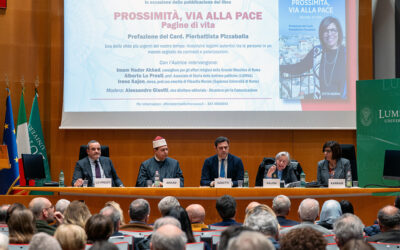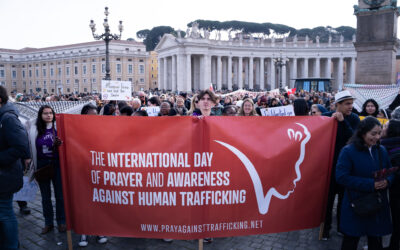
“The space given to the workshops provided an opportunity for a very enriching exchange. . . I was given a general presentation along with many of the practical aspects of priestly formation illumined by the spirituality of unity. It was a wholistic vision of the human person in the light of the Trinitarian mystery. . . The natural setting favoured the days together with a style of living that was communion and dialogue. . . I greatly appreciated the moments of common prayer and meditation. The texts were very beautiful, as was the exchange of experiences and life.”
These were some of the impressions left by those who attended a training course for educators in seminaries, promoted by the Centre of Spirituality for Diocesan Priests and Seminarians of Loppiano in collaboration with Sophia University Institute (SUI), Loppiano and the Focolare Priests Movement.
Twenty formators attended from 11 countries: Argentina, Austria, Brazil, Germany, Italy, Malta, Poland, Ukraine, Hungary and Venezuela, and became more aware of the importance of this service in the formation of future ministers, which is one of the most challenging tasks of the Church.
The course was offered to rectors, spiritual directors and formators working full-time in seminaries, and was initiated in response to the need for finding “pathways and paradigms for the discernment and formation of vocations to priestly ministry that meet the challenges of the socio-cultural changes that have an impact on the lives of young people today.” It is a two-year course – two weeks each year – with presentations by experts, work groups and plenary sessions for sharing, united with the celebration of the Eucharist and daily liturgical prayer.
The first part of the course offers theological, anthropological, ecclesial and pedagogical foundations applied to the various stages of priestly formation. The second part examines through the lens of communion, specific areas of wholistic priestly formation in the light of dimensions found in Pastores dabo vobis (human, spiritual, intellectual and pastoral). It explores such things as: the gift of self and communion; corporality and living the life of the Mystical Body; the harmony of the person and building up the community; Wisdom, studies and culture; communication and the communications media in service of communion.
 Following the first part of the course that was held last year at the Abbey of Vallombrosa, Italy, the second part was held on July 15, 2013 – July 27, 2013 at the restructured Centre of Spirituality of Communion in Loppiano, Italy.
Following the first part of the course that was held last year at the Abbey of Vallombrosa, Italy, the second part was held on July 15, 2013 – July 27, 2013 at the restructured Centre of Spirituality of Communion in Loppiano, Italy.
Credits are offered for the course, which has the approval of the Congregation for Catholic Education, through Sophia University Institute (SUI). Monsignor Piero Coda, Dean of SUI and Monsignor Vincenzo Zani from the Congregation for Catholic Education were on hand for the opening of the course.
Of particular significance was the fact that the course had been held last May and July in Bangkok, Thailand, for 60 formators from the Asian countries
Normal
0
14
false
false
false
MicrosoftInternetExplorer4
south of China.




0 Comments